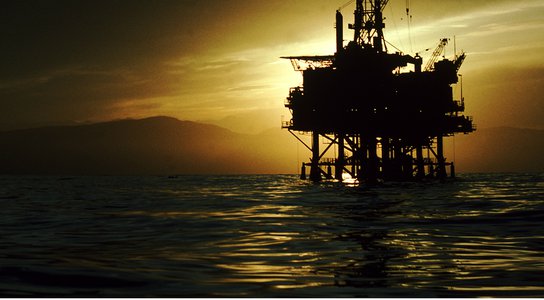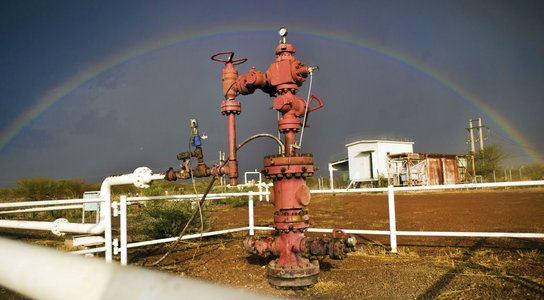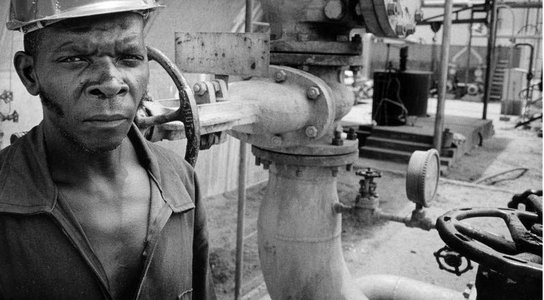Eni’s executives were accused of misleading shareholders in its Annual General Meetings and in statements to the press yesterday. Eni’s board was quizzed extensively on the validity of an internal investigation commissioned by the company into the 2011 corrupt deal for oil block OPL 245 which is currently under investigation by authorities in Italy, Netherlands and Nigeria. The company also confirmed that it had “self-reported” to US authorities.
Eni has claimed that its internal investigation “did not find evidence of illegal conduct”. However when questioned at its shareholder meeting the firm admitted that the investigation did not interview personnel involved who are suspects in a criminal investigation linked to the deal, and did not follow the Italian legal criminal procedure rules for the conduct of defence investigations. A letter from the Milan Public Prosecutor disclosed as part of a connected UK court case called the investigation “inconclusive and of poor value” while lawyers representing the prosecutor also pointed to the “patent self-imposed limitations pursuant to which its authors conducted their exercise.”
Global Witness campaigner Barnaby Pace said:
“Eni’s investigation failed to interview key people inside and outside the company who negotiated the corrupt deal, and failed to access key documentation that forms the basis of the allegations against the company. Eni has to come clean over this corrupt deal, the company told its investors it had found no evidence of illegal conduct but given what we now know about their investigation this isn’t good enough. Investors should be seriously worried about the systemic risks that the company might be facing if this is how they react to serious corruption allegations.”
Elena Gerebizza of Re:Common said “Eni’s claim to a zero tolerance approach to corruption does not seem to line up with their actions on the OPL 245 case. The management admitted to current CEO Claudio Descalzi’s talks with a known convicted criminal during the negotiations for the deal but refused to disclose the content of the conversations or say what action has been taken over this this deeply problematic situation. As the largest shareholder in Eni, the Italian Government has a responsibility to intervene, it cannot maintain an anti-corruption stance but ignore such credible evidence within Italy’s biggest company.”
An investigation by Global Witness, Re:Common and Corner House exposed that when OPL 245 was sold in 1998 for US$20m – a fraction of its value now – it went to Malabu Oil & Gas, a company secretly owned by the then Oil Minister, Dan Etete. The block was then passed on to Shell and Eni in 2011, with the Nigerian government acting as middleman, for US$1.1bn. This sum is equivalent to 80% of the country’s 2015 health budget, but it never reached state coffers.
Shell and Eni have always denied that they knew the money would ultimately go to Etete, but published evidence has shown that they were intimately involved in the construction of the deal to send $1.1bn to Etete’s company. Prosecutors have alleged in court that $523m of the payment to Etete’s company went to alleged “fronts for [former] President Goodluck Jonathan of Nigeria”.
Eni and Shell are under investigation by the office of the Public Prosecutor of Milan which has named Dan Etete, Eni and its current and former CEOs as suspects. Eni has “self reported” to US authorities. In February 2016 Dutch financial police working in a joint investigation team with Italian authorities raided Shell headquarters in The Hague. The Nigerian Economic and Financial Crimes Commission are also investigating the deal. US$190m paid by Shell and Eni for OPL 245 has been frozen in accounts belonging to Etete and a middleman in the UK and Switzerland. The Nigerian House of Representatives in 2014 called for the deal to be cancelled and declared it “contrary to the laws of Nigeria”.
Dotun Oloko, a Nigerian anti-corruption campaigner said “All culpable parties must be held to account and face serious consequences for the cycle of corruption to be broken both in Nigeria and western boardrooms.”
“Stonewalling by Eni and Shell over this deal is surely offensive to their shareholders and brings into question the fitness of their management to do their job.” said Nick Hildyard of Corner House
In answer to the allegations put to the company at the meeting by shareholders the company’s management said “Obviously these interviews talks [sic] did not regard those known to be listed in the register of suspects at the Milan prosecutor’s office, in order not to interfere with the judiciary’s investigations. Being an independent internal audit on a voluntary basis, it was not necessary to refer to the rule of the Code of Criminal Procedure governing defence investigations.” They added that a further analysis of internal investigation commissioned the board of directors recently “had confirmed, in a transparent manner, the adequacy” … “of the analyses carried out by other consultants”.
Shell has insisted that they did not pay Malabu and that all payments went to an escrow account held by the Government of Nigeria. In a response to a request for comment from Global Witness in April 2015 said “We do not agree with the premise behind various public statements made by Global Witness about Shell companies in relation to OPL 245” it has not responded to more recent requests to comment.
Contacts:
Barnaby Pace, Campaigner, Global Witness – [email protected] – +44 (0)7525 592 738
Oliver Courtney - Senior Communications Manager – [email protected] +44 (0)7912 517 147
Luca Manes – Re:Common (Italian language) – [email protected] - +39 335 572 1837
/ ENDS
Notes to editor:
1. Eni’s full statement on the results of its internal investigation is available at http://www.eni.com/en_IT/media/press-releases/2015/05/Eni_investigation_into_OPL245_case_audit_conducted_by_independent_US_law_firm_did_not_find_evidence_of_illegal_conduct.shtml
2. The recording of Eni’s Annual General Meeting is available at http://eni.iwebcasting.it/aa2016-press/?lang=en Written questions submitted before the AGM on behalf of Global Witness, Re:Common and The Corner House should be posted by Eni at http://www.eni.com/en_IT/governance/shareholder-meeting/shareholders-meeting/shareholders-meeting-questions-answers/shareholders-meeting-questions-answers.shtml . Photographed copies of the answers are available at https://www.flickr.com/gp/139466437@N03/w8bw81
3. A briefing on the background to the story “Shell And Eni's Misadventures In Nigeria” is available at https://www.globalwitness.org/en/campaigns/oil-gas-and-mining/shell-and-enis-misadventures-nigeria/
4. Global Witness published leaked emails between Eni and Shell officials conspiring to arrange the deal for OPL 245 in December 2015 at https://www.globalwitness.org/en/press-releases/leaked-emails-show-how-shell-and-eni-conspired-hide-payment-former-oil-ministers-company-corrupt-opl-245-deal/
5. The Securities and Exchange Commission is currently considering a final rule for Dodd Frank Section 1504 which will help bring payments to governments including in deals like the one for OPL 245 into the public domain. Similar laws in the European Union, Norway and Canada have been implemented; including the US these rules will cover two thirds of the world’s largest 200 extractive companies by market cap.
You might also like
-
Briefing Shell and Eni's Misadventures in Nigeria
In 2011, Shell and Eni paid US$1.1bn for one of West Africa’s largest oil fields, situated off the coast of Nigeria, but the money did not benefit the country’s citizens.
-
Briefing Revenue disclosure laws – Cardin-Lugar and the global transparency standard
Global movement to end the corruption that blights resource-rich countries is gathering pace.
-
Report How to lose $4 billion
Credibility test for global transparency standard as £4bn lost to anonymous oil and mining companies.